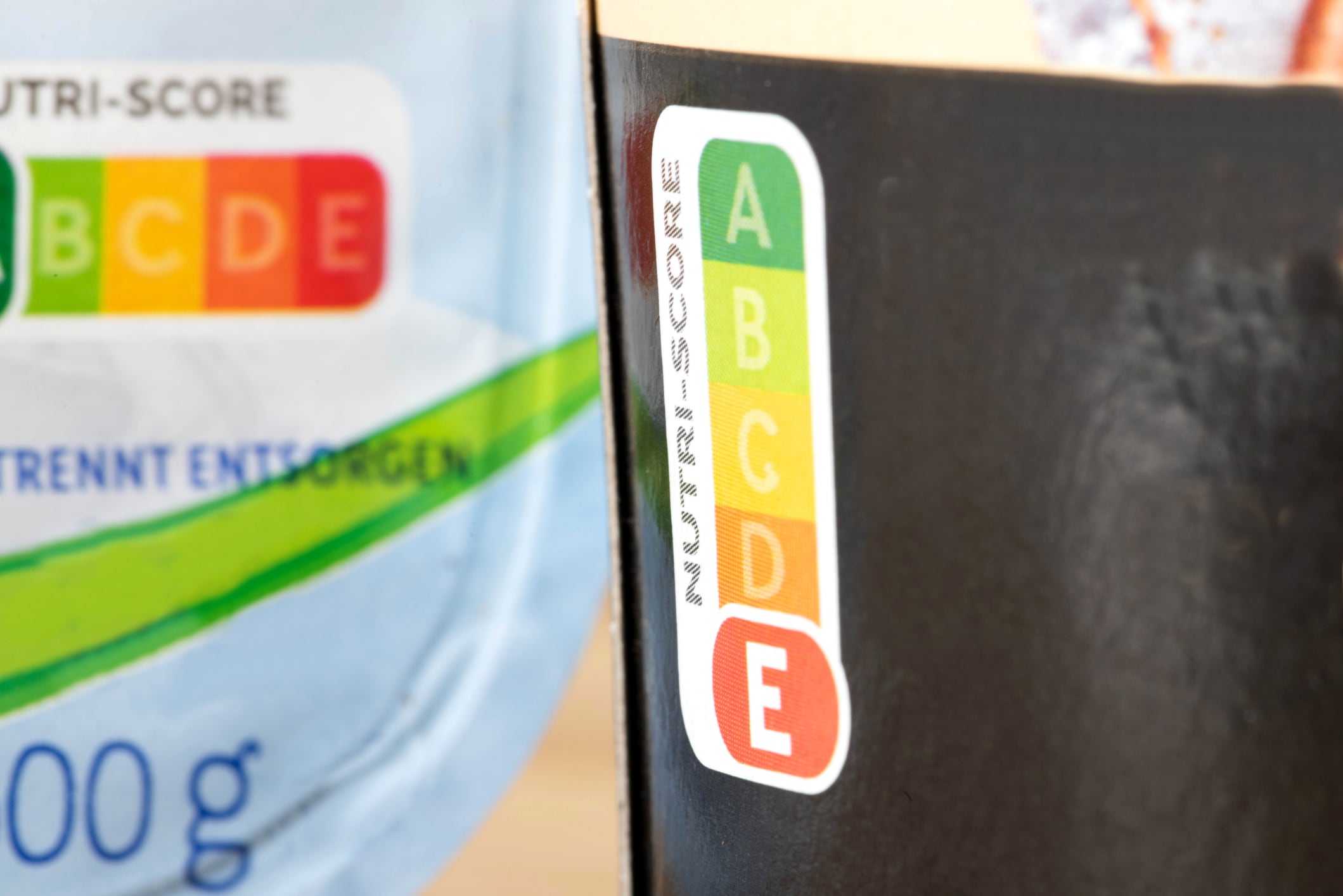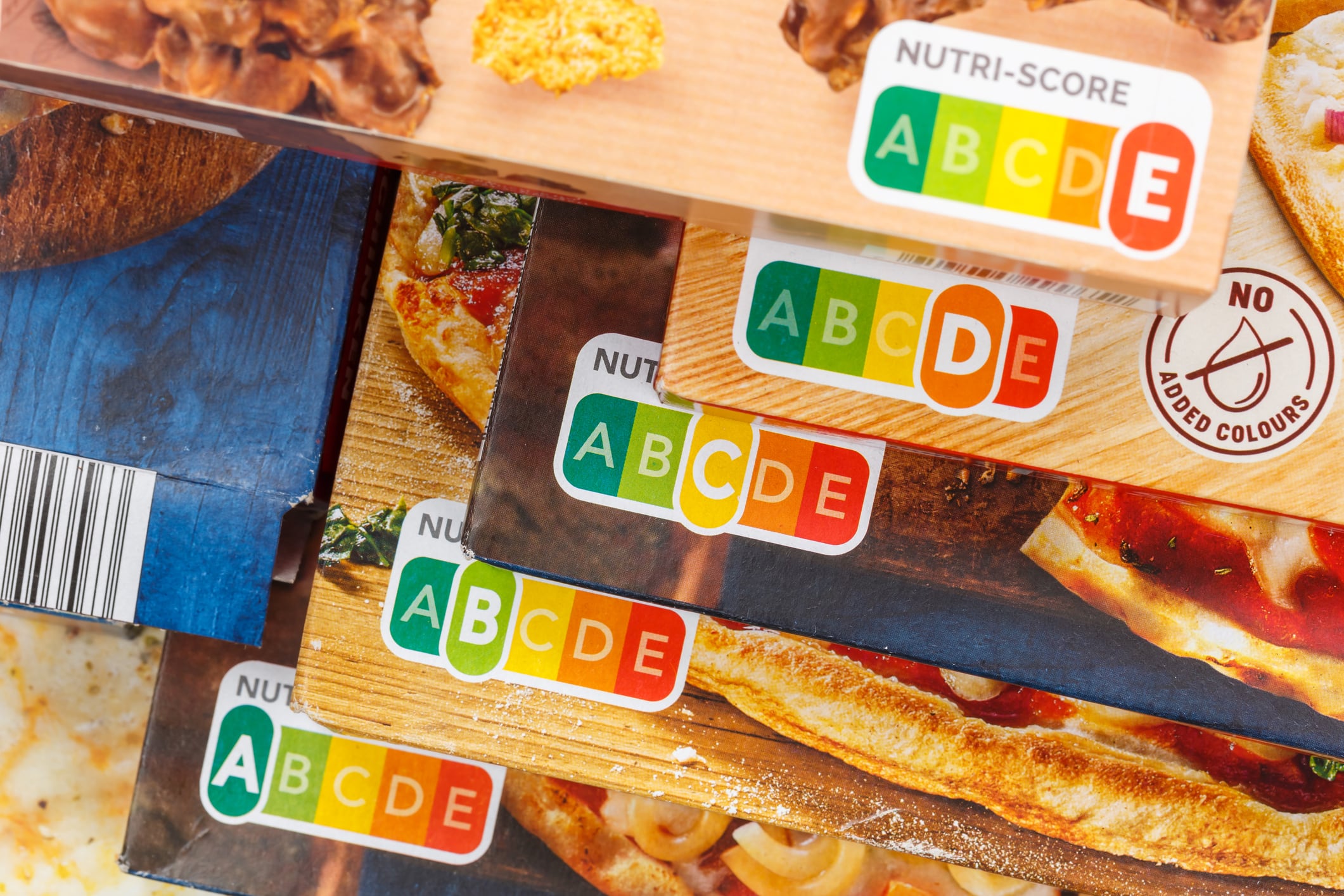The European Commission (EC) failed to confirm support for its Nutri-score food labelling policy during an uncomfortable press conference earlier.
An EC spokesperson during a midday briefing refused to say whether mandatory Nutri-score labelling plans had been shelved, but did not confirm the initiative was still backed either.
Attempts to set up the mandatory Nutri-score across 27 Member States has been met with challenge and pushback since it was first implemented in 2017 in France.
This is despite rising obesity levels across the bloc, as well as calls from UNESCO to make the policy mandatory immediately.
The system, based on the UK Food Standards Agency’s nutrient profiling standard, was adopted by France, Belgium, Germany, Luxembourg, the Netherlands, Spain, Switzerland and Portugal. Several countries, however, opted out.
Which countries use Nutri-score?
Businesses would remain free to use Nutri-score on a voluntary basis, including within those Member States that have already adopted it, said partner at Food Law Science & Partners, Katia Merten-Lentz.
“This implicit admission of failure from the EC is of no surprise to me,” she said.
“It was the same situation after the adoption of the Nutrition and Health Claims Regulation 1924/2006 when year after year the EC was postponing the definition of nutrition profiles without explicitly abandoning the project: 20 years later, we are still waiting for them.”
The EC’s decision not to adopt Nutri-score would unlikely impact public health, as labelling was already detailed and protective for consumers, added Marten-Lentz.
It would be a “relief to most businesses, which not all of them were satisfied by the new algorithm”, she added.

Companies including, most recently Danone, have called out complexities within the five-colour A to E Nutri-score front-of-pack labelling system.
The business pulled the label from its diary and plant-based drinkable products due to changes in nutritional value assessments.
Though science hasn’t been on the side of Nutri-score either, as independent scientists have repeatedly called out the system’s limitations and challenges, specifically around guiding consumers and industry towards healthier choices.
It is understood EC officials deemed the Nutri-score “too politically sensitive” to be rolled out and enforced across the bloc, non-governmental organisation Foodwatch said on Radio France last month.
During a press briefing on 28 February, EC spokesperson Anna-Kaisa Itkonen refused to confirm the Commission had dropped its pursuit of rolling the system out across the bloc.
“The Commission is committed to provide transparent information and respects the right of citizens to make informed choices,” said Itkonen.
Why has Nutri-score push been cancelled?
Consultation with Member States was ongoing, she said, but highlighted there were complexities within the proposed system, leading to an “inability to reach a common solution”.
“Efforts should focus on minimising related burdens, while ensuring informed food choices for citizens and promoting balanced, pragmatic solutions for businesses,” she added.
The European Commission was contacted for additional comment, but denied to provide more detail. A spokesperson said: “We can’t say much more than was said on Friday at the midday briefing.”
The Italian government has notoriously opposed Nutri-score, claiming it discriminated against traditional Italian foods, threatening the country’s cultural economy. It infamously refused to sign up to the system, favouring its own NutrInform Battery.
Italy’s Minister for Agriculture Francesco Lollobrigida said the move would be a “victory” for his government, which fought against the “misleading indications” of Nutri-score.
Italian ‘anti-health’ lobby groups have hounded the Nutri-score system and would claim victory over the EC’s decision to not pursue its implementation.
A replacement system would be unlikely, Marten-Lentz believed, adding: “If the EC has failed to find a consensus on Nutri-score while it was already widely used in many Member States and therefore well known and appreciated by consumers, it is difficult to imagine that the EC will find a miracle solution for a nutritional front-of-pack labelling that is satisfactory for all 27 Member States.”





